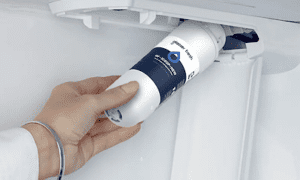Water sustainability is such an important factor for any UK business and with it being such a valuable resource, it is shocking to hear how much is wasted in as little as a week (around 800 Litres per week for the average family). Scaling this up to business standards could be horrific. Businesses can save water through a little bit of conservation and optimisation. It’s easy to do; it just takes a little effort!
Water management provides more benefits than you may realise. Not only does it cut down your water bill, but your energy bill too which is brilliant for the environment. Less water is much more eco-friendly, which all businesses should strive to achieve. Using less water helps reduce greenhouse gases released from the maintenance of collecting, treating, and supplying clean water.
Check up on your trade effluent licence
Any business that deals with large quantities of water should have a relevant trade effluent licence. Trade effluent is any liquid waste produced by the company on-premises through manufacturing processes. This doesn’t include water used from day-to-day activities such as hand washing and flushing toilets.
Why should you check it, and what does it do with saving money? Although it may be rare, some businesses are charged for trade effluent rates despite not needing it. If this is the case, be sure to file an appeal immediately. Contact specialists like Castle Water to ensure the process is done right if you need it. It’s a small point worth checking up on to avoid unnecessary spending.
Replace the standard taps
Many people might need to realise how much water (or money) there is to be saved by simply replacing their standard taps with spray taps. The best part about it is that it doesn’t diminish any water pressure quality, so you’re saving water whilst keeping the same standards.
Getting one put in costs an average of £140 (labour only), but this may vary depending on area and plumber. Bathrooms can be improved too by getting dual flush toilets as opposed to single flush. It allows the user to use different amounts of water to their desire, providing your business with an immense opportunity to save water.
If your business is dotted around with short taps and toilets, you may have old plumbing fixtures – a massive red flag. Due to a little dripping tap, old plumbing fixtures can lose you up to 180 litres of water daily. Therefore, getting everything up to date and replacing all those old taps will greatly improve the water efficiency that saves you loads.
Carry out regular checks
This point coincides with the previous of checking all your taps and toilets. If your water bills don’t quite match how much you’re using for whatever reason, it may be time for a water audit. Carried out by expert teams, a water audit will analyse all your water usage and provide detailed feedback that will determine where all your money is going. This will highlight if you have any leaks too. If the price still seems unreasonable, it probably is, and it may be time to switch providers.
If you wish to avoid a water audit, you can still carry out routine checks yourself. Put a few drops of food colouring or a dye tablet into the basin for leaks. If the colour shows up in your bowl, it might suggest to you that you are wasting water without realising it. Taps should be checked regularly, and any signs of drips should be fixed immediately.
Brief your visitors and staff
All of these points would only be relevant with the proper staff training. Getting your staff on board with the water sustainability tips will help make everything you put into motion a reality. Every visitor and team member should take an interest in saving water. Not just for their well-being but the business also. This could be through posting signage on how to help conserve or simply giving them a quick brief on what you expect them to do.
This could be through:
- Reducing the running time of taps.
- Small water habits such as using reusable water bottles.
- Sustainability briefing on any high-water usage appliances such as dishwashers, laundry, showers etc.
A simple point in the right direction already sets you on the right foot, and from then on, every change you make will be a lot easier with the contribution of others.
In summary
This only scrapes the surface of water sustainability. There are still plenty of money-saving tips for business water and niche tips for certain industries. It may be a supplier issue if you feel you are getting bumped out of lump sums of money from water usage. In which case, you may want to consider a switch of business water provider; be sure to choose someone who cares about saving water.



































